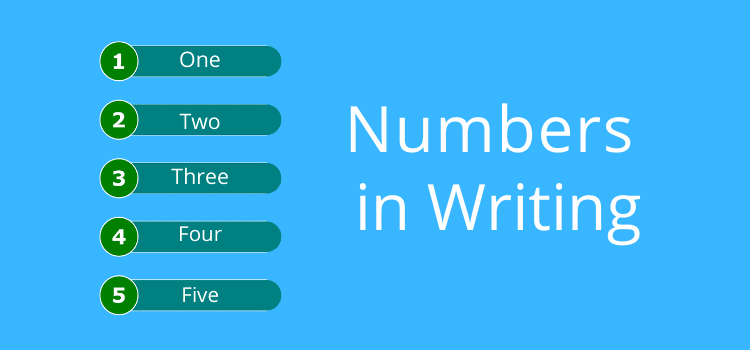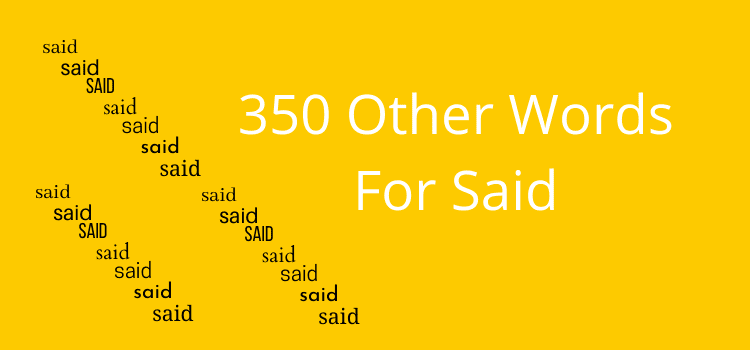
Numbers in writing always need a little extra care because there is always the choice between using numerals or spelling out a number in full.
Using numbers is essential for clear communication, yet the rules can sometimes be confusing.
Whether you are writing a report, an email, or even a novel, knowing when to spell out words or use numerals can impact the readability of a text.
However, understanding and applying some basic rules will make your writing more accurate and easier to read.
Expressing numbers in writing

The guidelines for spelling out numbers can differ depending on which writing style guide you use.
APA Style, the Chicago Manual of Style, and many others have slightly different rules.
But there is one rule with which everyone agrees. You need to be consistent in your use of numbers in writing.
There are minor differences of opinion about when you should spell out numbers or use numerals.
But your style selection will depend on whether you write fiction, articles, or technical documents.
However, two general rules usually apply to all forms of writing.
One is that when a sentence starts with a number, you should write the numbers in words.
The second is that you spell out numbers from zero through to ten in words, but larger numbers use numerals.
But there are many uses, so let’s look at some specifics in more detail.
General rules for writing numbers

Because there are no hard and fast rules, there are many exceptions with numbers.
Depending on the advice is some style guides, you may find variations for some of the following pints.
But the suggestions below might help you to be more consistent.
For any form of writing, you should always check that you are not mixing different ways of expressing numbers.
1. Numbers that start a sentence
When a sentence starts with a number, you should spell it out in full.
This is a rule that has very few exceptions.
It applies to both small and large numbers.
Ten children attended the party.
Nineteen eighty-seven was an eventful year for me.
Seventy-two people responded to my survey.
One-third of the respondents gave it a poor rating.
2. Hyphenate compound numbers and fractions
When you spell numbers from 21 to 99, always use a hyphen.
But be careful with the number forty.
There is no U. It’s a common spelling mistake.
The number forty-two is a famous number from the Hitchhiker’s Guide to the Galaxy.
She turns twenty-one next Saturday.
For fractions, it is always better to write them out in full.
It looks like two-thirds of the population will vote for her, according to the polls.
You need to answer at least three-quarters of the questions correctly to pass.
3. Ordinal numbers
Generally, you write ordinal numbers in full unless it is a date.
Tomorrow is their twenty-fifth wedding anniversary.
He finished third in the race, which was a great effort.
I’ll make an appointment for you on October 26th.
4. Decimals
Decimal numbers are usually written in digit numbers for clarity and accuracy.
It was 87.2 degrees yesterday.
Our spending on advertising has risen by 4.7% this year.
I measured it, and it was only 3.8 inches long.
The world’s population is around 7.8 billion people.
When you use abbreviations for units of measurement, always use numerals.
The book is 3.6 cm thick.
I lost 7.5 kg last month.
5. Time
You can use two forms to express time in writing. You can use digital time or o’clock.
But always use a hyphen with compound numbers.
I’ll meet you at eight-thirty pm.
Let’s get started at around eleven o’clock.
I should be home no later than seven-fifteen.
The meeting starts at half past ten.
6. Years
The most common form is to use numbers for years.
1971
1654
2006
Most style guides recommend not to spell out years because it can be difficult to read.
7. Decades
It’s best practice to write these words in full.
I was born in the fifties.
My favorite decade was the sixties because of the music.
The seventies will be remembered for the popularity of the colors orange and brown.
However, if you use digits, make sure you are consistent because there are different accepted forms.
Elvis was popular in the ’60s.
We moved here in the 90’s.
Life was tough in the 30s.
The one mistake to avoid is using a possessive apostrophe.
Disco music was popular in the 70’s. (Incorrect)
Disco music was popular in the 70s. (Correct)
8. Centuries
In writing, it is usually best to spell out an ordinal number for centuries rather than use ordinal numerals, such as 21st or 15th.
We are living in the twenty-first century.
There was a plague in the fifteenth century in Europe.
Life was pretty tough in the nineteenth century.
9. Large numbers
You can use the words millions, billions, or even trillions for big numbers that are even or expressed as decimals.
The national debt is around three trillion dollars.
It cost them 3.1 million to build their house.
The government is investing billions in research.
But when it comes to precise long numbers, it is usually best to express them in digits for simplicity and clarity.
It was confirmed that 6,523 people attended the match.
The forecast annualized profit is expected to be $6,700,900.
During the first month of the crisis, 11,750 lost their job in the state.
10. Two numbers in a row
It’s always best to avoid this situation. But when it’s necessary, spell out one of the numbers to avoid confusing your readers.
A better solution is to rewrite your sentence so you can separate the numbers.
There were 7 4-year-olds at the kindergarten. Confusing.
There were seven 4-year-olds at the kindergarten. Better.
There were seven children at the kindergarten, and they were all four years old. (Best solution)
Summary
You are sure to find varying opinions about how to use numbers in writing correctly.
However, as always, there are always exceptions to the rules when writing numbers.
If you are interested, Mignon Fogarty, the Grammar Girl, goes into a long explanation about the rights and wrongs in a podcast on numbers.
As I said at the beginning of this article, being consistent is a critical factor in good writing.
Here are some basics to keep in mind.
Use a Style Guide: Refer to a style guide relevant to your writing context.
When in Doubt: Use words instead of numbers if you are not sure.
Proofread: Carefully review your text for any problems with numbers.
Stay Consistent: Apply the same rules throughout your text.
Related reading: Do You Capitalize Mom And Dad And Other Family Names?
Share This Article



Can we not just spell numbers instead spelling out numbers. The action-direction thing drives me nuts….(I know, get a life).
That being said, your presentation is greatly appreciated.
Very informative.